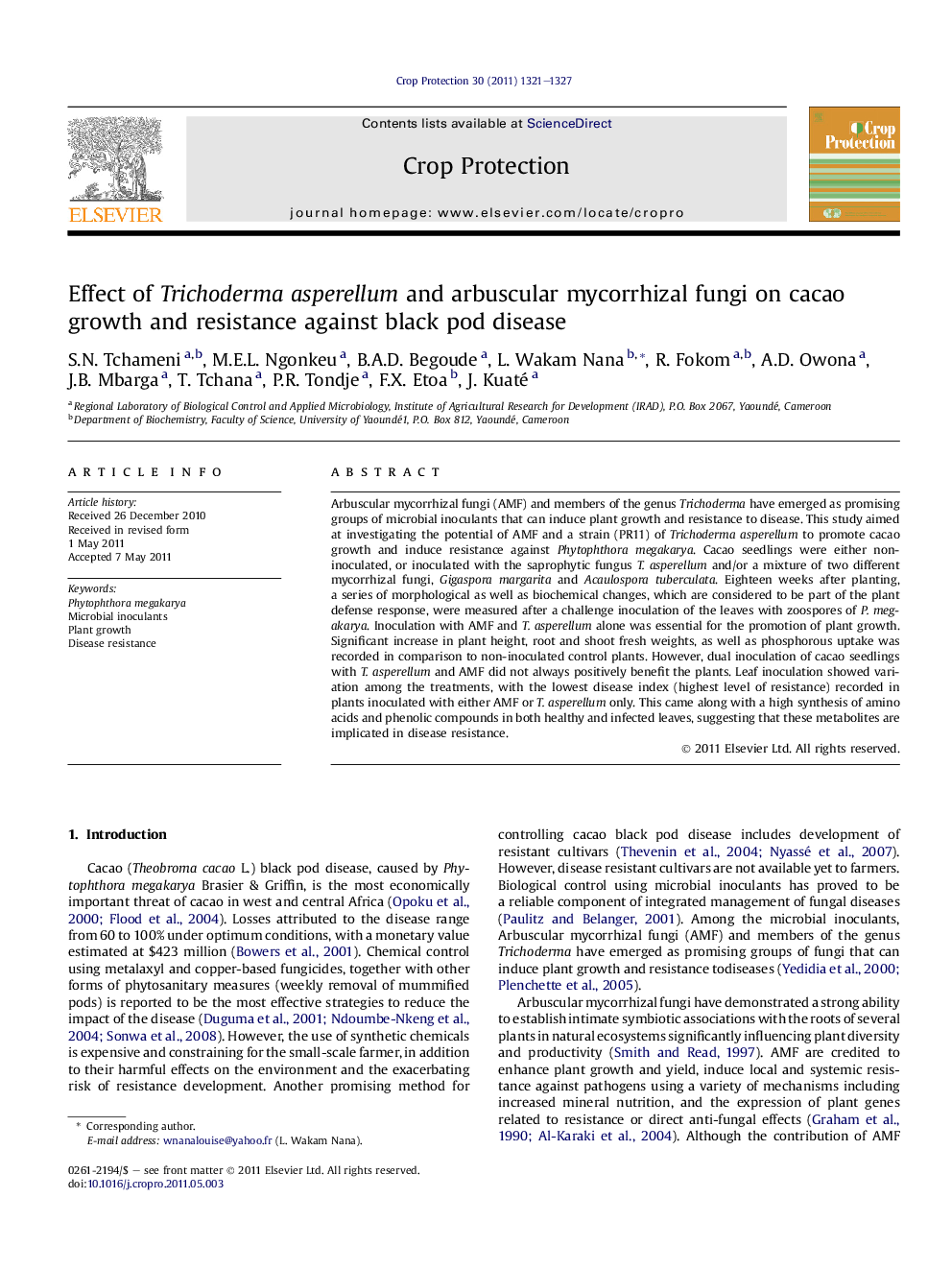| Article ID | Journal | Published Year | Pages | File Type |
|---|---|---|---|---|
| 4506571 | Crop Protection | 2011 | 7 Pages |
Arbuscular mycorrhizal fungi (AMF) and members of the genus Trichoderma have emerged as promising groups of microbial inoculants that can induce plant growth and resistance to disease. This study aimed at investigating the potential of AMF and a strain (PR11) of Trichoderma asperellum to promote cacao growth and induce resistance against Phytophthora megakarya. Cacao seedlings were either non-inoculated, or inoculated with the saprophytic fungus T. asperellum and/or a mixture of two different mycorrhizal fungi, Gigaspora margarita and Acaulospora tuberculata. Eighteen weeks after planting, a series of morphological as well as biochemical changes, which are considered to be part of the plant defense response, were measured after a challenge inoculation of the leaves with zoospores of P. megakarya. Inoculation with AMF and T. asperellum alone was essential for the promotion of plant growth. Significant increase in plant height, root and shoot fresh weights, as well as phosphorous uptake was recorded in comparison to non-inoculated control plants. However, dual inoculation of cacao seedlings with T. asperellum and AMF did not always positively benefit the plants. Leaf inoculation showed variation among the treatments, with the lowest disease index (highest level of resistance) recorded in plants inoculated with either AMF or T. asperellum only. This came along with a high synthesis of amino acids and phenolic compounds in both healthy and infected leaves, suggesting that these metabolites are implicated in disease resistance.
► Stimulation of plant growth through an increased nutritive content is observed. ► Induction of defence metabolites such as polyphenols and amino acids is noticed. ► Microbial inoculants could protect cocoa against Phytophthora megakarya.
